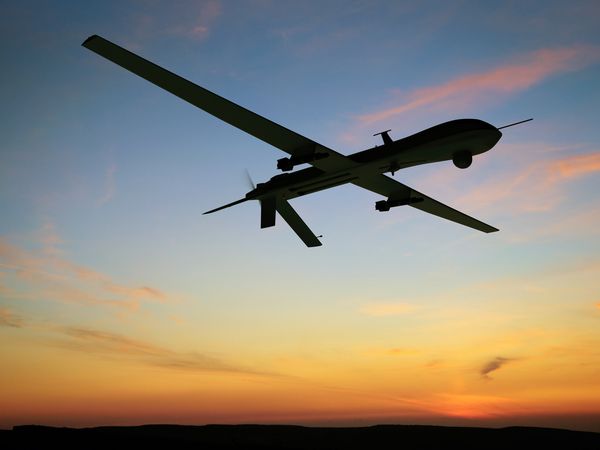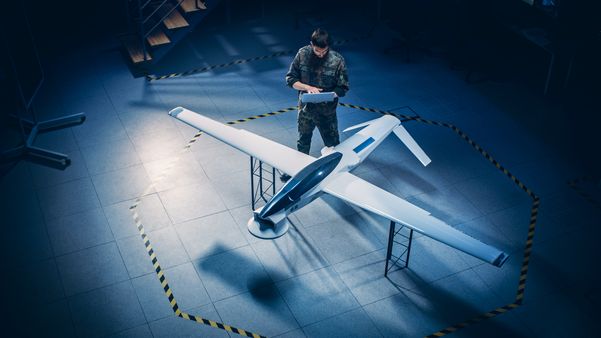Textron's nowhere near its 52-week lows... but it could go there. TXT Total Return Price data by YCharts.
Last week was not a great week for Textron (TXT 1.11%) investors. This week may be little better.
Last week, we learned that Textron is out of the running to buy helicopter-making rival Sikorsky, losing that race to Lockheed Martin. Thus, Textron lost an opportunity to join Sikorsky's franchise with its own Bell helicopter business, much as it joined Beechcraft to Cessna two years ago.
The company tried to erase that disappointment Tuesday with earnings results that beat by the proverbial penny. But was the news good enough to justify the ensuing stock rally?
Textron reports
Textron announced its second-quarter financial results Tuesday morning. For Q2 2015, the company reported:
- $3.25 billion in quarterly sales, down 7% from last year's Q2
- $0.60 per share in net profits -- up 18% from last year
- Manufacturing free cash flow of $89 million
Investors responded with applause, sending Textron shares up nearly 5% in the immediate aftermath of the news. The spike has subsided since. But if you ask me, Textron's share price gain could quickly evaporate, and even turn negative, as investors continue to digest the news.
Why? Well consider: The $89 million in free cash flow Textron generated was only a little more than half of reported income from continuing operations ($163 million), and barely one-third of the $241 million in cash profits generated last year. Sales were down year over year, and below analyst estimates.
Even the earnings beat of one whole penny is hardly ticker-tape-parade material. It also doesn't seem to have given Textron enough confidence that things are going well to raise its earnings guidance for the year -- which management held steady at $2.30 to $2.50 per share -- despite CEO Scott Donnelly's assurance that "the company remains on track for growth in the second half of the year."
Valuation
Now, none of this is to say that things are going absolutely horribly at Textron. The company's firmly profitable, generating plenty of cash to finance its operations, and even the sales decline isn't all that bad, considering the state of the U.S. defense budget.
In terms of valuation, management is still guiding us to expect $550 million to $650 million in cash from operations this year. Minus $80 million in planned pension contributions, and capital expenditures of, say, $450 million (Textron's average level of capital investment for the past three years, according to data from S&P Capital IQ), that gives us some assurance the company will remain free cash flow-positive for the year -- and may generate as much as $120 million in cash profit.
Even if Textron hits the tippety-top of cash profit projections, however, that would work out to a valuation of nearly 100 times free cash flow on the stock (which would otherwise look cheap at a forward P/E ratio of 14.1). I think that's too much to pay for Textron -- and it's the reason I won't be joining in this week's buying frenzy.
Textron simply costs too much.







